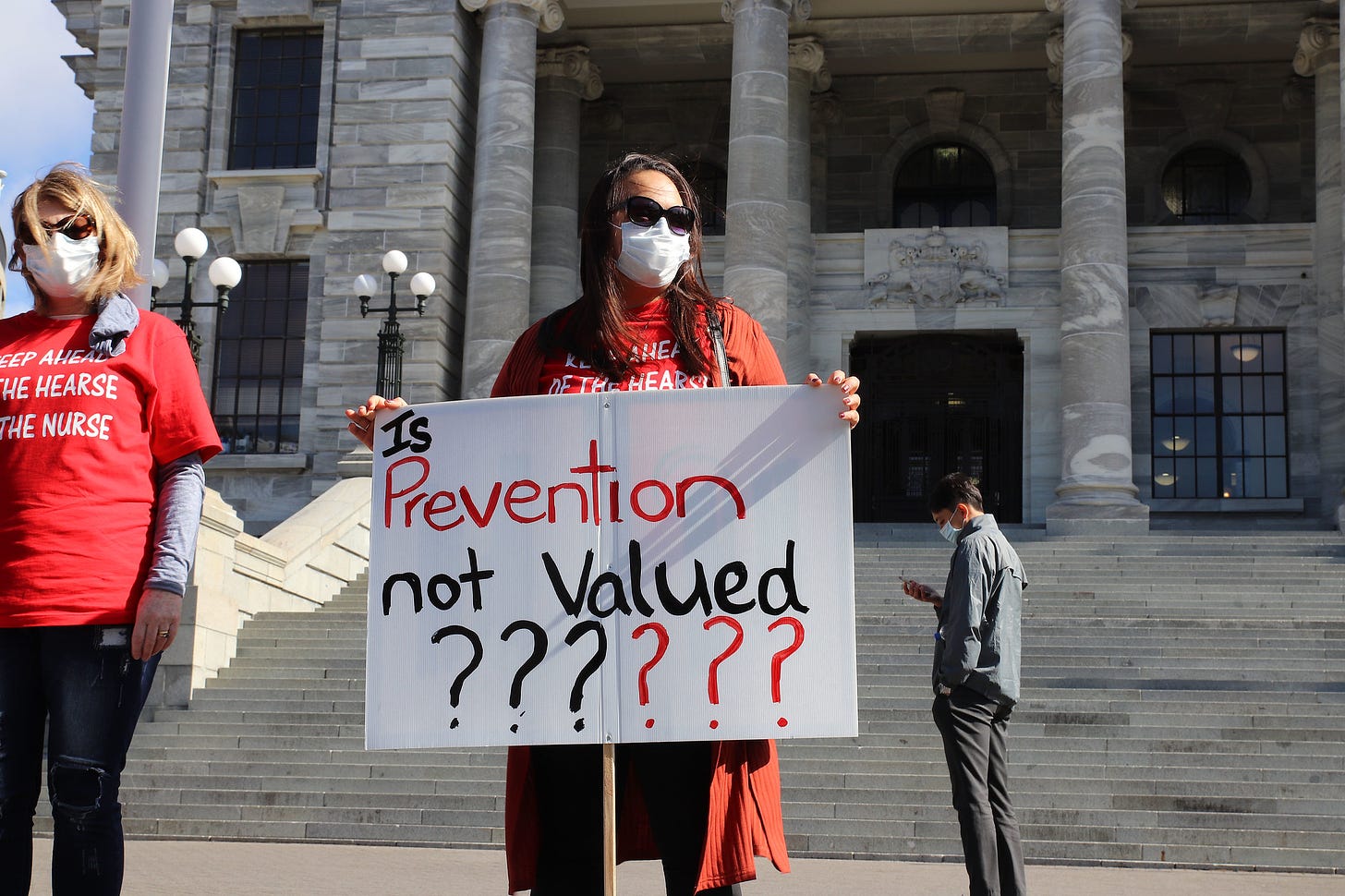
Mōrena. Long stories short; here’s my top six things to note in Aotearoa’s political economy around housing, climate and poverty on Friday, August 23:
Medical specialists have called for an independent inquiry into health funding, warning $1.4 billion of cuts by Health NZ commissioner Lester Levy will cut into the bone of a health service underfunded for decades.
New research shows elderly poverty now rising in New Zealand at the fastest rate in the world as two decades of falling home ownership rates drive up housing costs much higher than NZ Superannuation was designed for.
In solutions news, Habitat for Humanity unveils 22 new warm, dry homes in Whangārei.
In quote of the day, Tama Potaka says he doesn’t know where 200 tamariki have gone after they were removed from emergency accomodation in motels.
In chart of the day, inflation is falling globally in line with oil prices.
In our climate graphic of the day, China’s coal-fired electricity generation has fallen for three months running for the first time since Covid as its massive rollout of solar, wind and batteries begins to take up the load.
The Top Six for Friday, August 23
1. ‘The $1.4 billion of health cuts will cut into the bone’
Specialists call for health funding review in Medical Journal article
The Association of Salaried Medical Specialists (ASMS) called in a NZ Medical Journal article published this morning for a full inquiry into health funding levels. They argued real funding per capita continued to fall below the OECD average and $1.4 billion of spending cuts by new Te Whatu Ora-Health NZ boss Lester Levy would be cutting into the bone of health services.
“There is an urgent need to open an independent inquiry into how we fund our health system. This includes accounting for the true cost of health services—and the economic gains New Zealand would realise if health was viewed as an investment in our people.” ASMS’ Virginia Mills, Lyndon Keene, James Roberts and Harriet Wild in a paper titled: The cost of everything and the value of nothing: New Zealand’s under-investment in health
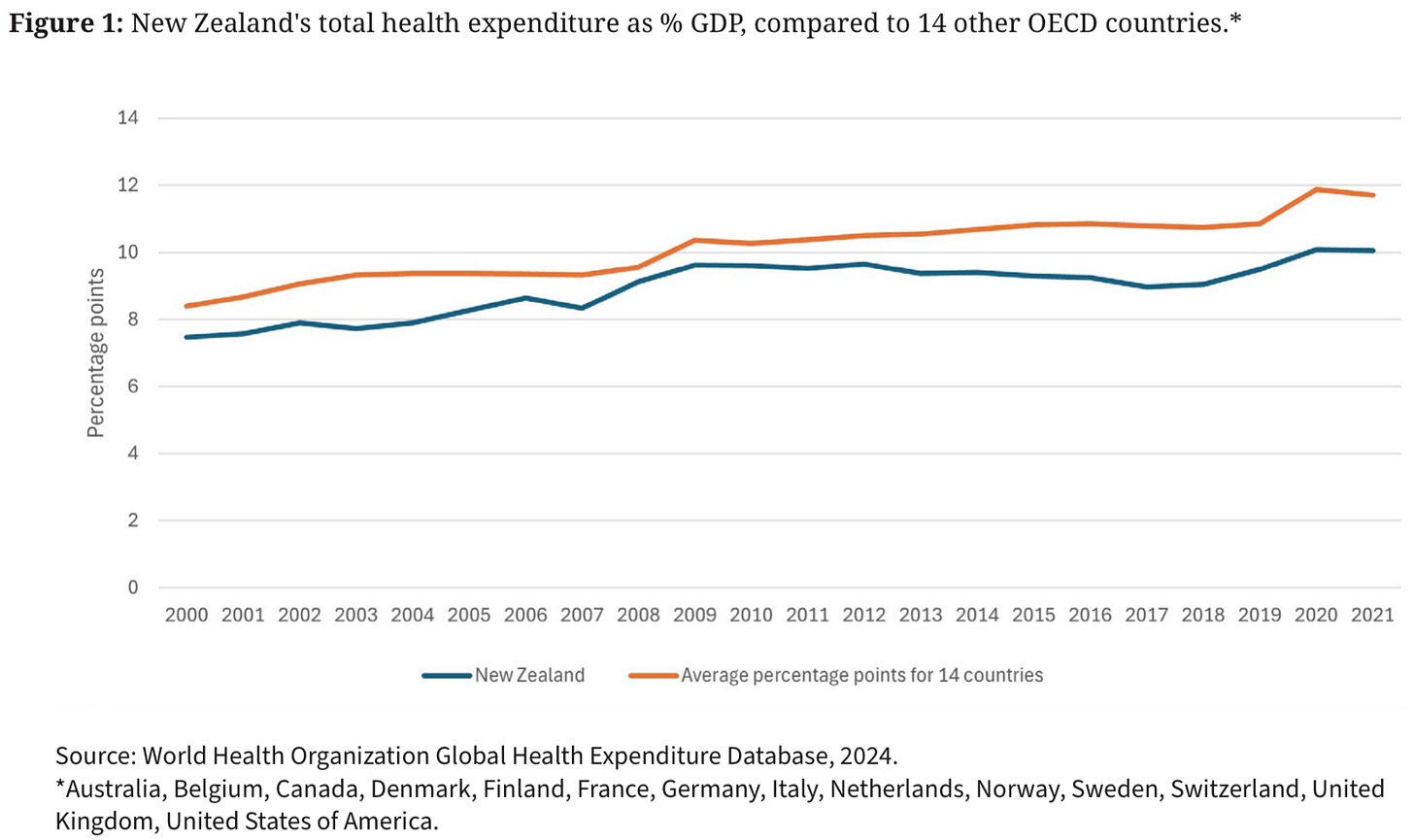
2. A wave of renting pensioners is arriving
After years of warnings, falling homeownership is now hitting over 65s
For years, economists and advocates for pensioners have warned that the slump in home-ownership rates among the young would inevitably cascade into a massive problem with elderly poverty because NZ Superannuation is designed for couples who own their own homes. It is set at a level that is financially comfortable for those living in a debt-free home, but is not enough for renters. Until recently, those proportions of over 65s renting was significantly lower than for working age people.
But if you say this for long enough, then eventually the young people age into people over the age of 65. It is one of those profound moments where the unsustainability of housing unaffordability comes home to roost.
BERL Economist Urvashi Yadav has published a note showing the emergence now of this bow wave of elderly poverty. It’s titled: Home ownership and unequal ageing.
“Early signs of the impending crisis are already visible. The housing register, which reflects the excess demand for public housing, shows the extent to which this need is growing within the older population. The number of older applicants increased by 215 percent between 2015 and 2024, the fastest increase amongst all age groups. Exacerbating this issue is the mismatch between the type of homes the older population needs, i.e., smaller houses, and what is available. Just 11 percent of the public housing stock and 13.6 percent of the private housing stock are made up of one-bedroom homes, while 50 percent of the people on the housing register require a one-bedroom home.” BERL Economist Urvashi Yadav
“NZ Super is an important lifeline for a large number of older people. 60 percent of seniors either rely solely on NZ Super or have only a little more. But the universal, flat-rate design fails to account for distributional impacts, and more older people are slipping into poverty. In 2020, 16.8 percent of people over 65 were living in poverty. For women, this was even higher at 20.1 percent. New Zealand had the largest increase in income poverty for older people in the OECD between 2000 and 2020. The rate fell by 0.8 percent in all of the OECD on average.
“Given that the primary objective of the NZ Super is to “protect from poverty in old age”, the current design is rapidly failing to meet this intended goal. Te Ara Ahunga Ora — Retirement Commission assessed that New Zealand currently compares well to other OECD countries on elderly poverty but points out living in owner-occupied homes is a key factor, and there is a “risk of increased elderly poverty if home ownership amongst pensioners decreases.” This is a “risk” that is materialising at an unprecedented pace.” BERL Economist Urvashi Yadav
3. Solutions: Building warm, dry homes
Habitat for Humanity opens 22-unit project in Whangarei
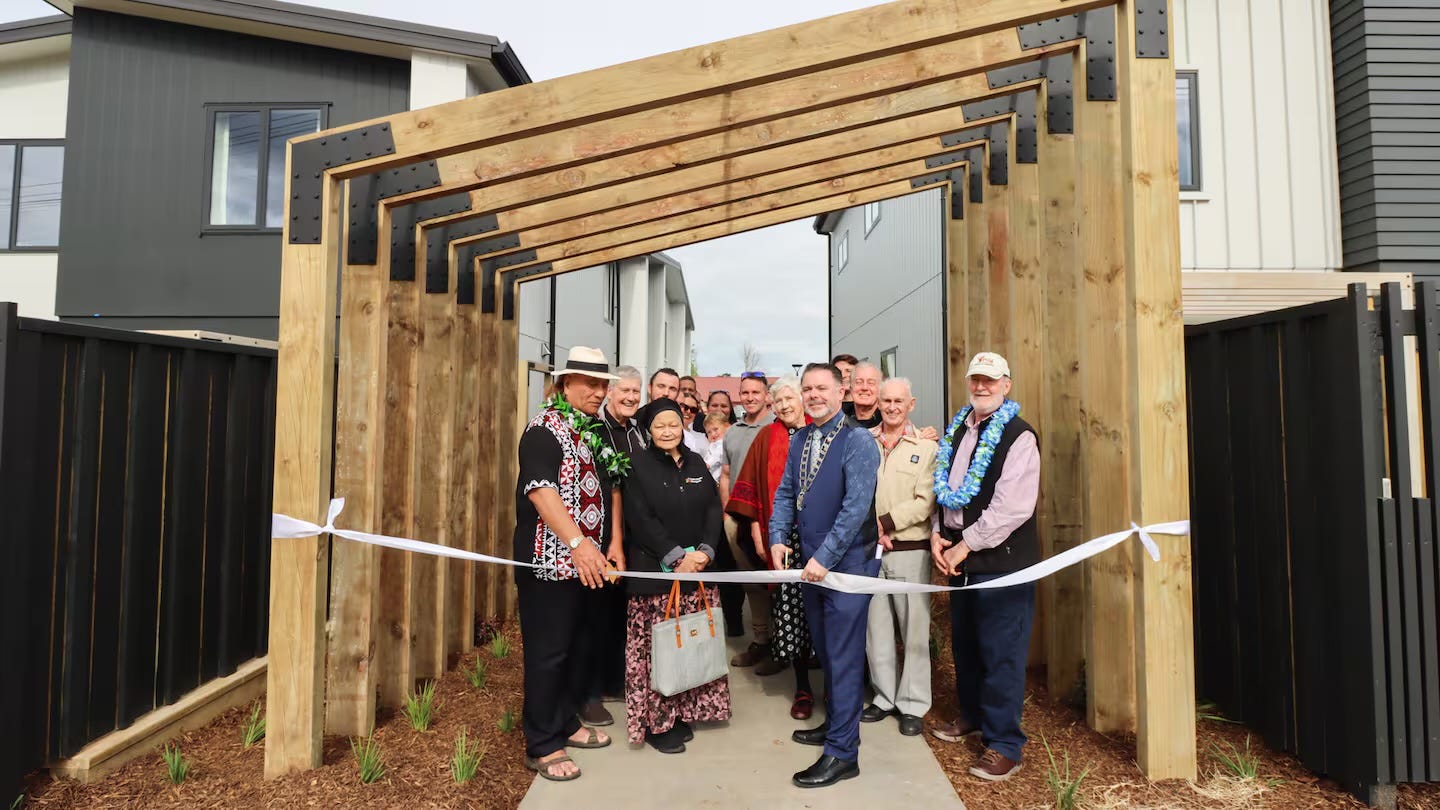
4. Quote of the day
Cognitive dissonance
“No, I’m not worried that some are now homeless. But I am worried about the emergency crisis that is housing across the country. They are under no obligation to tell us. And to be fair, I don't think we want the government knowing where every single person lives every single night, every single day,” Social Housing Minister Tama Potaka telling Stuff’s Glenn McConnell that he did not know where 20% of the 1,000 tamariki moved out of motels this year were now living. About half had moved into Kāinga Ora homes and 30% were now in private rentals.
5. Chart of the day
Inflation is down all over the world, after the oil price fell
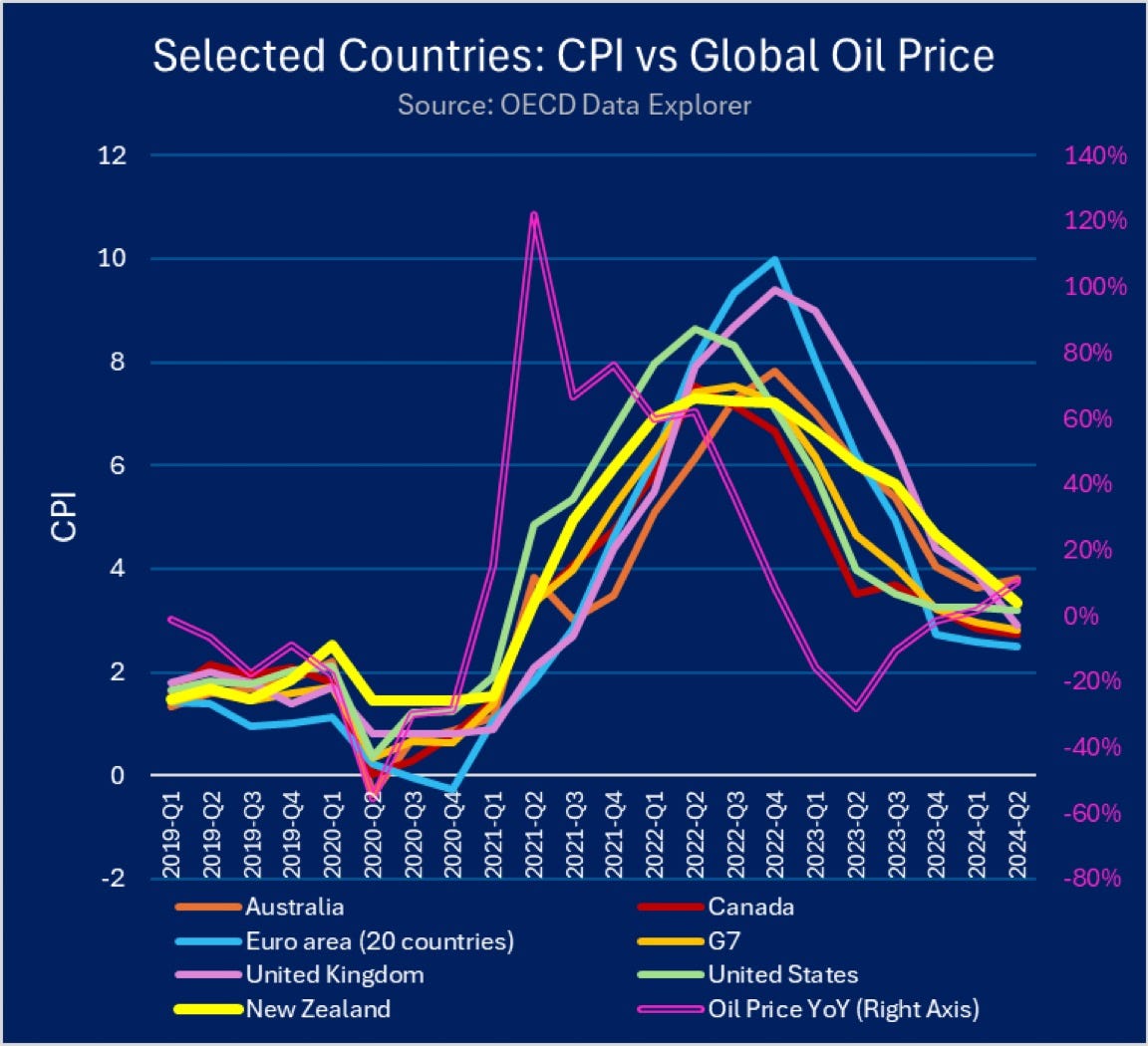
6. Climate graphic/chart/pic of the day
Some good news
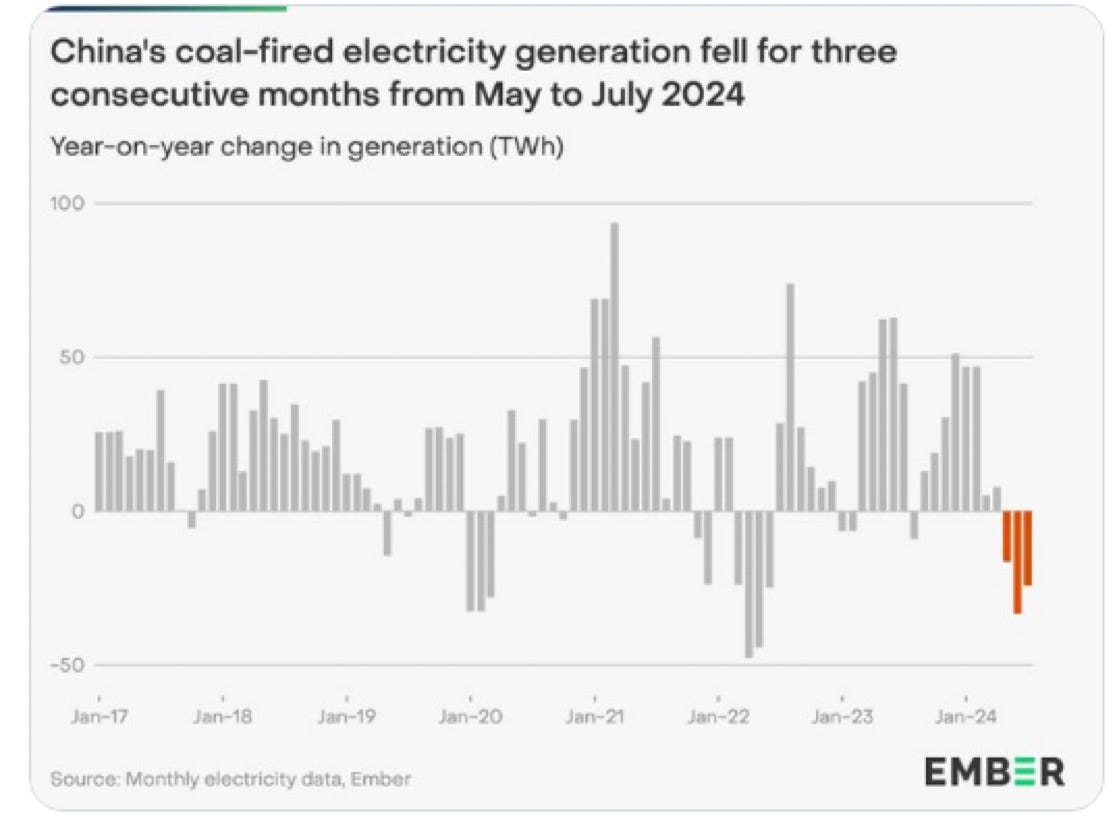
The best of the rest
Top Six Scoops and Deep Dives for August 23
Politics Scoop: Shane Jones calls judge ‘communist’ in meeting with seafood lobby over Māori rights. Stuff’s Tova O’Brien
Climate Deep Dive Pine forestry good for land and wallets RNZ’s Eloise Gibson
Urbanism Deep Dive: Who killed the Johnsonville mall? The Spinoff’s Joel MacManus
Op-Ed by immigration advisor Ankur Sabharwal Immigration New Zealand cracks down on visitor visa applicants. Stuff
Infrastructure Scoop Limited engagement with iwi on Three Waters replacement NZ Herald-$$$’s Azaria Howell
Electricity Interview: Shane Jones threatens to end Electricity Authority if it doesn't 'man up' RNZ’s Alexa Cook
The Kākā’s Journal of Record for August 23
Infrastructure: Local Government Minister Simeon Brown announced the launch of a 'regional deals' framework for long-term infrastructure projects based on local government meeting certain negotiated outcomes. RNZ, The Post-$$$
Housing: RMA Reform Minister Chris Bishop announced a second RMA Amendment Bill enabling "four packages of reforms," while legislation to eventually replace the RMA was being developed. The Bill includes reforms meant to enable cities to "expand outwards at the urban fringe," new rules requiring councils to enable mixed-use development, and reforms to enable the Government's Electrify NZ and Going For Housing Growth policies.
Electricity: Transpower announced hydroelectric generators would be able to access contingent storage if necessary to alleviate electricity supply risks from historically low lake levels. RNZ, NZ Herald
Child poverty: Minister for Social Development Louise Upston announced that the five-member Children and Young People's Commission would be replaced with a single Commissioner.
Climate: Stats NZ reported greenhouse gas emissions fell in most NZ regions in 2023, with Waikato emissions down due to less coal and natural gas use to generate electricity, and from the end of oil refining in Northland.
Poverty: The Public Health Communication Centre reported perinatal mortality hasn't fallen for 15 years, with Māori, Pasifika, Indian, and socioeconomically-deprived babies being more likely to die during or shortly after birth.
Finally, some fun things
‘Dude who took a limo ride across the street wants councils to stop wasting money’
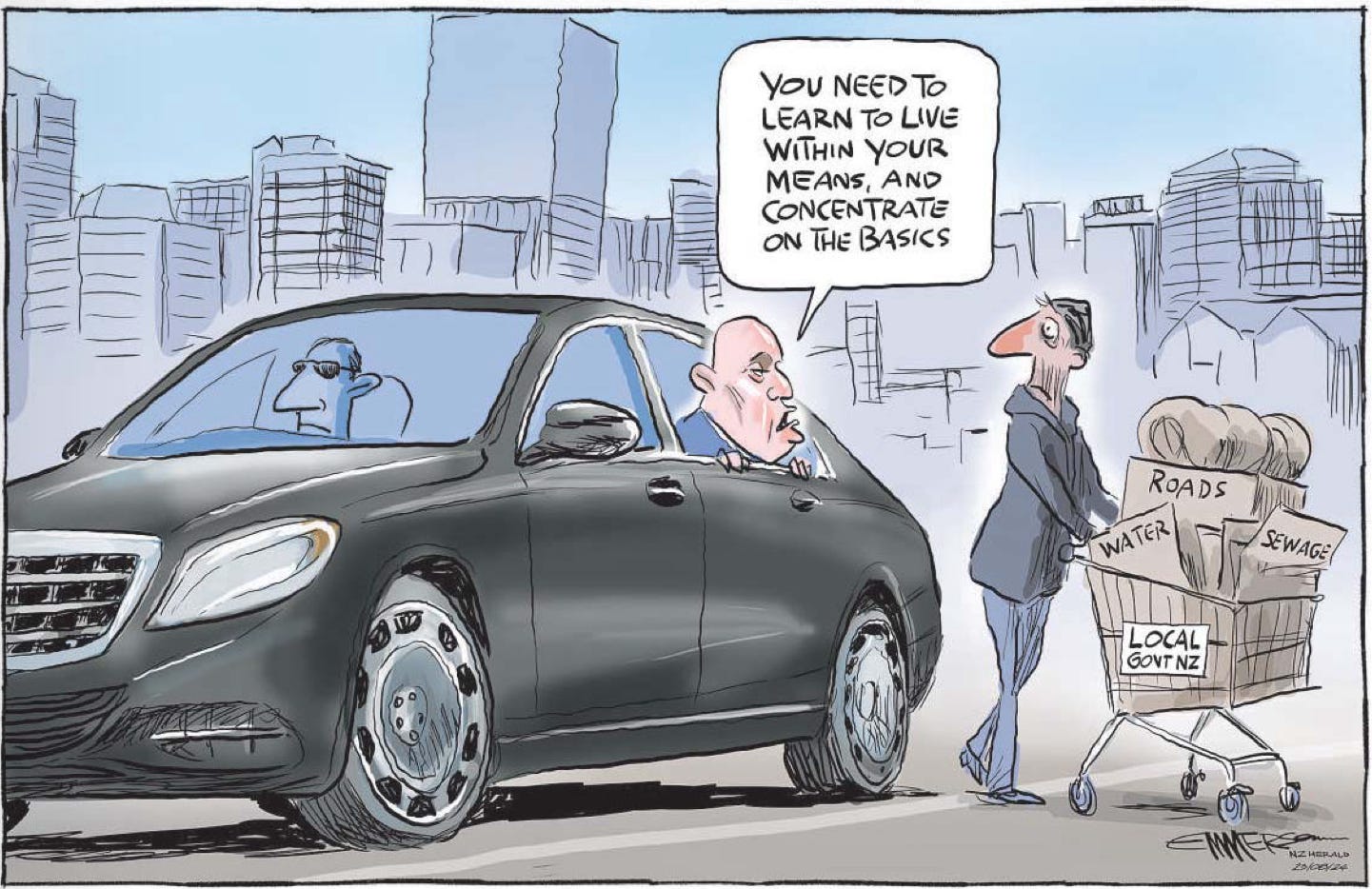
Even ‘Dead Boat Bay’ looks good on a day like this
Mā te wa
Bernard




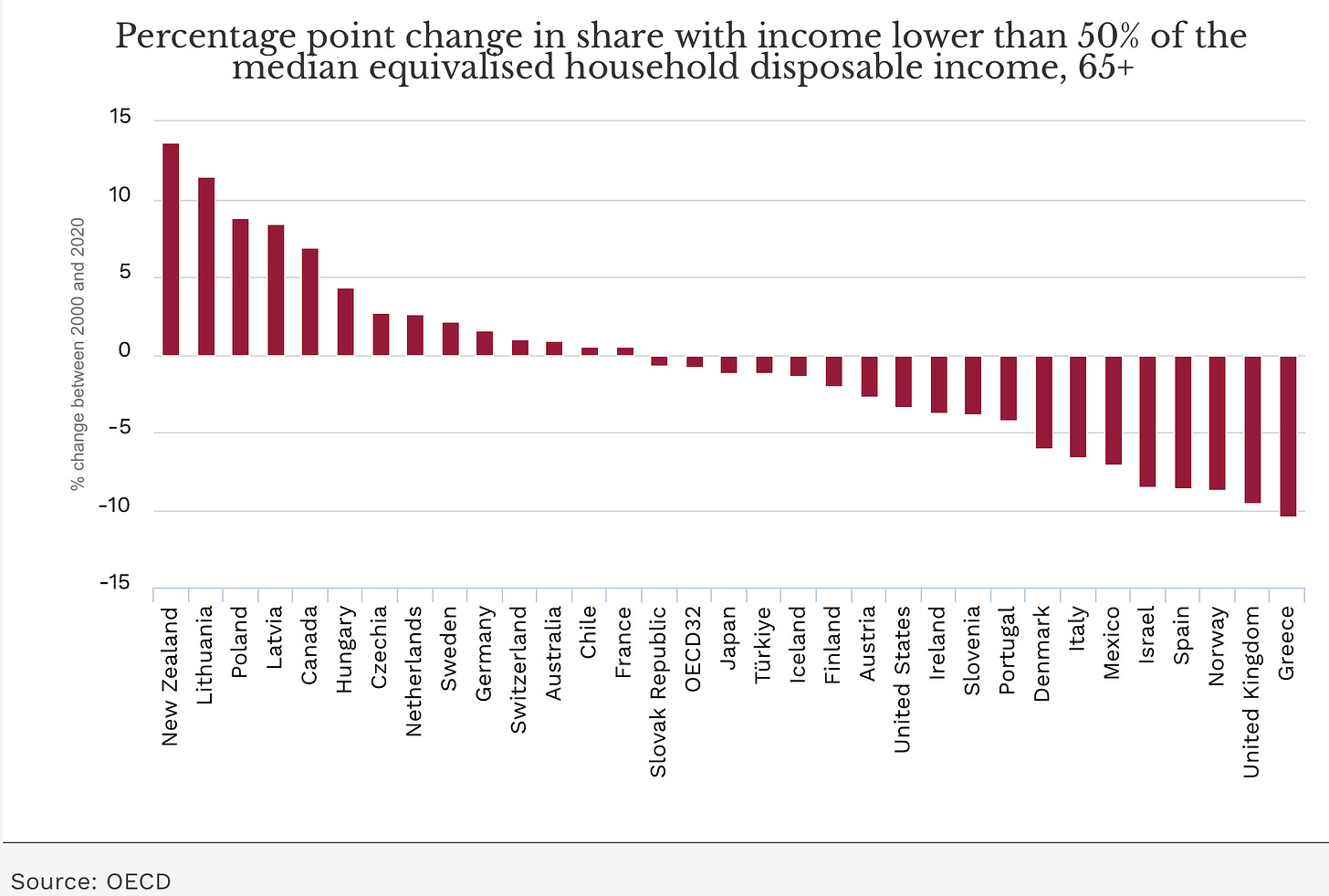
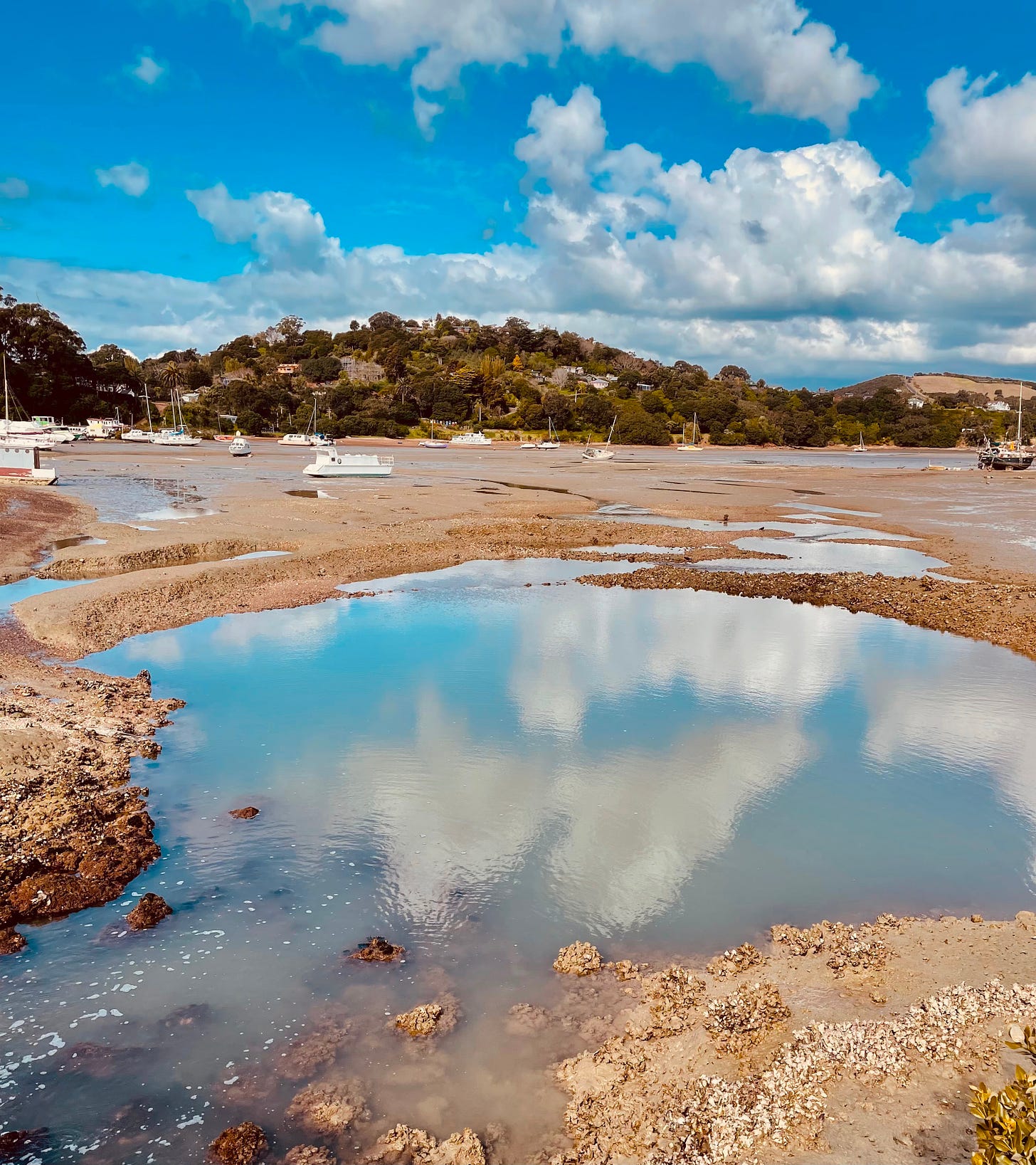









Share this post